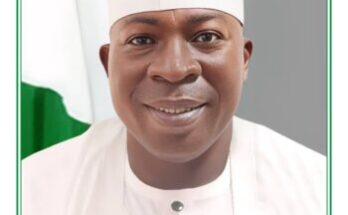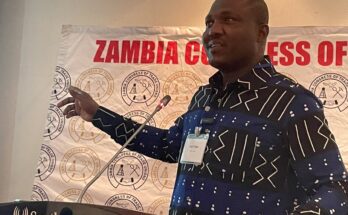The chief operating officer of an indigenous waste recycling company in Lagos, Mr Gregory Ohiaeri, in an interview with TEMITOPE MUSOWO, explains the process of a successful microbial waste farm in partnership with LAWMA and the move towards achieving zero waste in Lagos.
What is EarthCare Nigeria Limited all about?
Healthcare Nigeria Limited is a waste-to-wealth company; a recycling company that produces fertiliser through bio-technology. We collect organic materials like kitchen waste, market wastes and bring them into our facility here in Ikorodu where we recycle and convert it into various products. By this we create biologically-rich humus for sustainable agriculture. We also produce raw protein for animal feeds, lava for fish feeds and so on.
We do not only remove diseases and toxic compound from wastes but also create biologically-rich humus for sustainable agriculture which is the next direction of government after oil.
Tell us about the process of this conversion of waste into wealth
The process begins first with the removal of wastes from the environment. This is where we engage an army of unemployed youth in the city. Thereafter, we would bring the waste to our manufacturing plant here in Ikorodu where we have people who are already trained on how to handle various machines and equipment.
The first stage is the grinding stage where the waste materials go through grinding, and then we take the wastes out of the building to where we expose them to biological process between 8 to 12 weeks. Here, we off-load the wastes into what we call wind row; each row is about 70 metres long and 2 meters high. They are then inoculated with microbes using a non-genetically modified process,.
The microbes serve the purpose of detoxifying the wastes, removing the pathogen that controls the flies so that we won’t have any room for breeding their population whatsoever. After this, we bring the wastes back into the factory for the process of screening.
At this stage, the metals, tins, plastics, and so on, are separated; then, we have only the biologically-produced humus that contains microbes that fix nitrogen. It is then bagged into 25kg bags and ready for distribution to farmers. This is how we produce our organic fertilisers or Compost Plus as we call it. Then, we also take some of the wastes to produce larvae which later metamorphose into black soldier flies (BSF). We would then use the larvae to produce bio-conversion for animal feeds in which we have raw protein and oil, larvae, pupa, frass (compost) and eggs.
The reason we use the BSF larvae is because unlike the housefly which perches on food and all sorts of things, the BSF don’t even have mouth to eat; they only eat at that larvae to pupa stage; therefore, they carry no pathogen that can cause diseases at all.
How do you source for your raw materials?
This is where our partnership with the Lagos State Waste Management Authority (LAWMA) comes in; they supply us the waste from households, markets, factories and so on. So LAWMA gives us access to the waste which we use as raw materials. Lagos is a mega city with an estimated population of 22 million people.
It generates an average of 12,000 metric tonnes of waste on daily basis. Apart from the hazards this volume poses to the environment, the two major dump sites in the city in Igando and Olusosun are getting filled up, hence, the initiative of Babajide Sanwo-Olu’s led administration to achieve zero waste through sorting and recycling. This is why our recycling company, Healthcare Nigeria Limited, which converts waste to organic fertiliser, animal feeds, etc has taken up this challenge.
Can you tell us the difference between organically-produced fertilisers like this and the inorganic one?
When we say this is an organic fertiliser, it shows it has its nutrient naturally produced without adding any chemical content, but the other is produced through chemical process. The nutrients are chemically introduced and so when you use it to grow crops and you eat the crops, the residual chemical substance also gets into your body.
You know we hardly do autopsy here when people die, if we do, most of the deaths would probably have been traced to the intake of these chemical substances. That is when you put down a crop grown with chemical fertiliser and the one grown with organic fertiliser. The chemically-grown ones decay faster because of the chemical substance therein.
How do you get market for your products? I can see mountain of bags already produced waiting for buyers
That is our present challenge; that is why we need government to help us sensitise the people especially farmers about the importance of organic fertiliser. We also need government to patronise us. Most times, when government wants to purchase fertiliser for farmers, they prefer to go and import from Morocco and from other countries where they cannot ascertain the composition of what has been bagged; meanwhile, they can easily come here, give us specification and supervise us while doing it, but they prefer importing fertiliser.
The mountain of fertiliser bags you were referring to was the one the former Minister of Agriculture, Audu Ogbeh, asked us to produce, they are about 50,000 tonnes. Except if he will come back for them today, otherwise, they are there wasting away. So, marketing is our greatest challenge for now.



